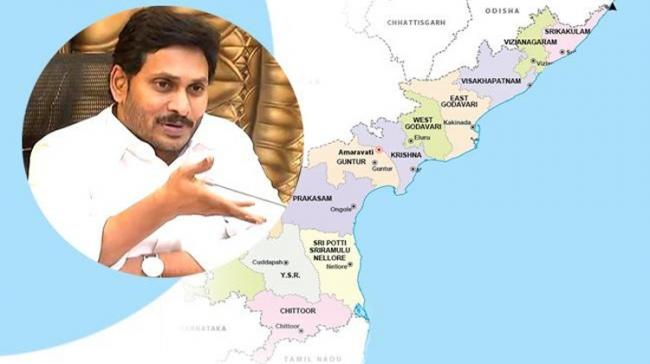 AMARAVATI: In a significant development, the Andhra Pradesh state cabinet, at its meeting held here under the chairmanship of Chief Minister YS Jagan Mohan Reddy on Wednesday, gave its approval for the formation of a study committee for the creation of new districts in the state.
AMARAVATI: In a significant development, the Andhra Pradesh state cabinet, at its meeting held here under the chairmanship of Chief Minister YS Jagan Mohan Reddy on Wednesday, gave its approval for the formation of a study committee for the creation of new districts in the state.
The state cabinet took several decisions at the meeting and significant among them is its ratification for the formation of the study panel which will now go into the feasibility of reorganizing the existing 13 districts into 25 districts. The panel has been given time till March 31, 2021 to complete the process of its study. The committee will be headed by the chief secretary. The reorganization of the districts will be based on the parliamentary constituencies in the state, which are 25 in number.
The cabinet approval also marks a significant milestone as the increase in the number of districts in the state on the basis of the existing Parliamentary constituencies is one of the key pre-poll promises made by YS Jagan Mohan Reddy.
However, the proposal for the creation of a 26th district also came up for the discussion in the meeting. Deputy Chief Minister Pushpa Sri Vani pointed out that Araku, which is going to be a new district post the restructuring, has a large geographical area and is spread across four districts. Responding to this, Chief Minister Ys Jagan Mohan Reddy directed the authorities to study the possibility of carving Araku Parliamentary constituency into two districts.
Briefing the media about the decisions taken in the cabinet meeting, Information and Public Relations Minister Perni Nani said, the cabinet has also passed a resolution permitting the establishment of a ‘Sand Corporation’ to monitor and address all issues related to sand mining, transportation and its sale. It will be a subsidiary entity under the mining department.
He also stated that the cabinet has given its consent for the formation of a new corporation — Andhra Pradesh Rayalaseema Drought Mitigation Project Development Corporation Ltd — for implementing irrigation projects at an estimated cost of Rs 40,000 crore in the Rayalaseema region.